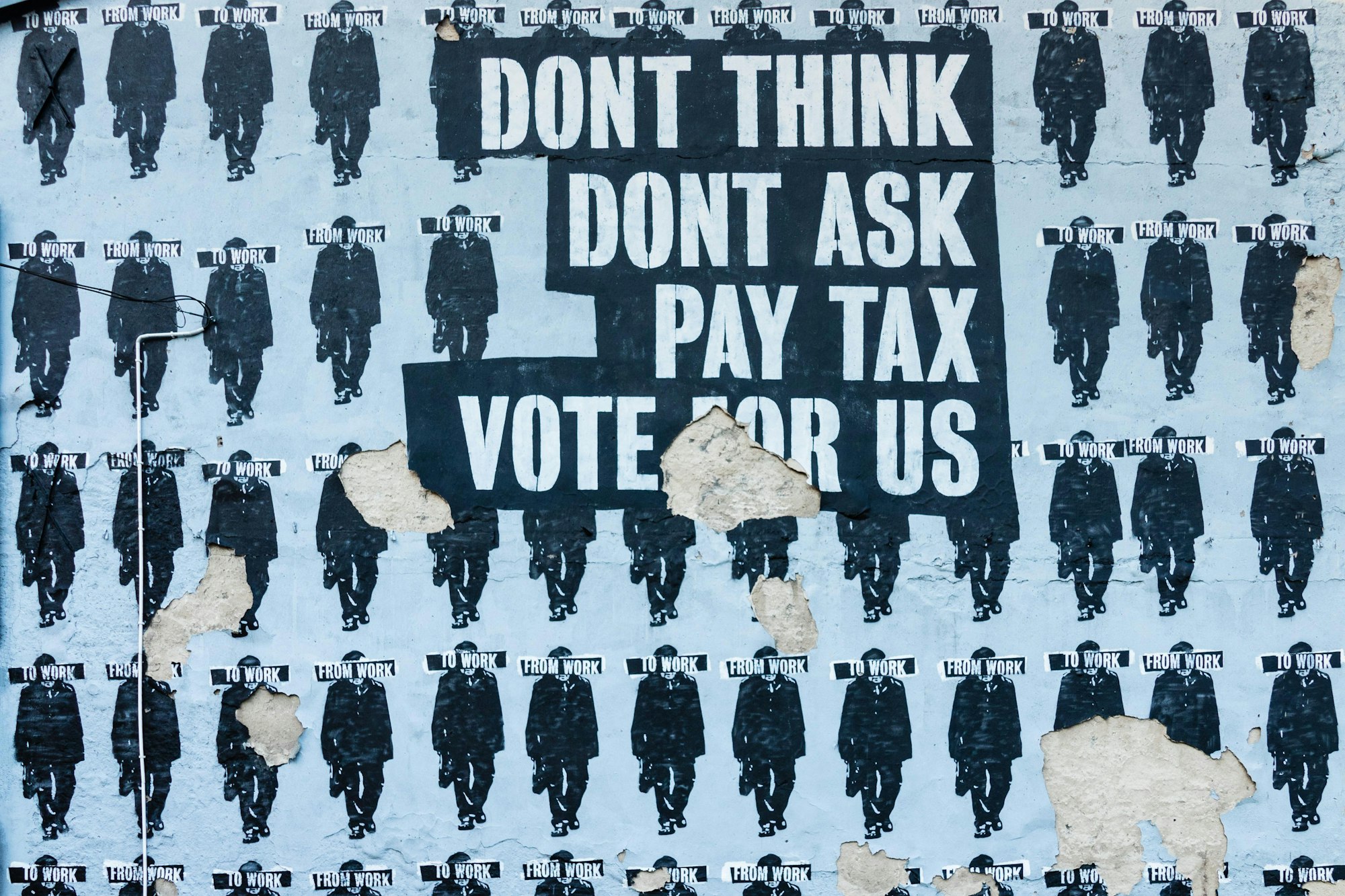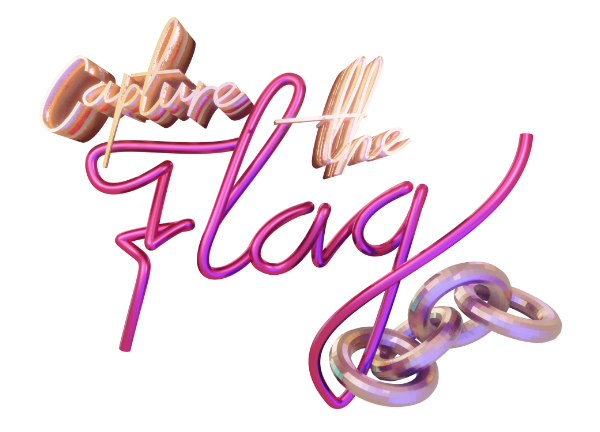How do you coordinate an ever-increasing number of people? Most people even find it difficult to make "team decisions," especially when choosing where to go on vacation. Even more surprising, as society has grown and become more complex, power has become more centralized. Is this the point of the natural order, or is our system of government evolving accordingly?
“In individuals, insanity is rare; but in groups, parties, nations and epochs, it is the rule.” — Nietzsche
From the perspective of individuals in democracy, this power dynamic gradually deteriorates as society grows and their voices are overshadowed by noise. This sense of helplessness and lack of representation is the main reason for the acceptance of political voices in many modern democracies.
Worse, this underestimation is ironic to the model of representative democracy used in many countries. In such a model, citizens must necessarily choose their representatives from a limited number of candidates, hoping that their idealistic views will be as consistent as possible. This, of course, is not possible and leads people to tend to vote on important promises. Candidates are therefore motivated to make populist promises that emotionally capture voters.
A variety of factors have led to the following basic theses.
- Citizens do not have to control every aspect of their relationship with society. As far as it works, most people prefer to give up their freedom to focus on a specialization.
- Professionals are marginalized because soft skills and knowledge are to some extent key to influencing decision making. When it comes to implementation and networking, depth of knowledge plays a minor role.
- Officials keep the populists' promises because many people cannot voice their opinions. These issues are influenced by other political decisions on which elected officials have the right to vote.
There is a risk that a political apparatus will emerge that eventually replaces long-term, multi-layered plans with short-term, one-dimensional, and controversial promises. Moreover, the simplification of individual voting preferences increases the concentration of power as the decision-making process reduces responsibility for decision-making to elected officials outside the sector.
Although our modern communications technology dramatically improves the inherently limited ability of individuals to interact and gather and process information, today's governance processes still depend on centralized crutches and arbitrary distinctions such as "member," "employee," "customer," and "investor" – characteristics that were arguably originally necessary because of the inherent difficulties of managing large numbers of people, but perhaps no longer. Now it may be possible to create systems that are more fluid, more general, and harness the full power curve of people's ability and desire to contribute. There are a number of new governance models that seek to use the new tools to improve transparency and efficiency, including Liquid Democracy, Futarchy, and Demarchy.

"The tyranny of the minority is infinitely more odious and intolerable and more to be feared than that of the majority." – William McKinley, January 1886
Liquid Democracy
Liquid democracy, a component of delegated democracy, is a powerful electoral model for the collective decision-making of large communities. Liquid democracy combines the advantages of direct and representative democracy to create a truly democratic electoral system where voters can vote directly on issues and vote for trusted parties.
In short, liquid democracy allows voters to vote directly on an issue, delegate their vote to members who voted for them, or delegate the vote to members. This is more realistic because it can be done throughout the year, regardless of the election cycle. In essence, liquid democracy solves the problem of voter misrepresentation and allows voters to decide for themselves how much they are willing to give up.
"Fully decentralized" blockchain applications often use representative or liquid democracies (and occasionally proxy voting) for governance. Voting rights are determined by possession of a governance token that confers governance rights. Maker (MKR) governance, for example, is similar to a direct shareholder democracy. Compound (COMP) takes a liquid democracy approach, where everyone is free to either vote directly or delegate their voting rights to someone else.
Futarchy
Another idea is Futarchy, a form of government first proposed by economist Robert Hanson. In this case, users do not elect representatives or policies. They vote for a metric that defines how well the political community is functioning.
A technology known as a "prediction market" is then used to incentivize the implementation of policies that optimize the metric chosen by citizens.
Market participants have an incentive to speculate to profit, and the outcome of such a "prediction market" (on which policies to use) is binding. Futarchy's core idea of "vote values, bet beliefs" is based on the notion that markets are smarter than centralized elected decision makers at predicting outcomes.
Prediction market projects such as Augur and Gnosis are already in development, improving the availability of information for decision making.
Gnosis and Zeitgeist want to experiment with Futarchy for governance of their projects. DAOstack is implementing a looser variant of Futarchy called Holographic Consensus, where DAO members make governance proposals and market participants bet on whether the proposals will be accepted or rejected.
Demarchy
A third form is demarchy, which means "chance" in Greek. It is based on the ancient Athenian principle of random selection of representatives, combined with concepts of collective intelligence of the Internet age.
In drafting the Constitution, the Founding Fathers of the United States debated the use of draws to elect representatives. Like the classical thinkers, they saw this as a method to prevent factions.
John Burnheim was one further pioneer. In his book "Democracy Possible? The alternative to electoral politics" (1985) argued for a political system based on randomly selected groups of decision-makers. In "The Principles of Representative Government" (1997), another pioneer - Bernard Manin - examined the potential of democracy in modern democracy.
Demarchy is based on the random selection of people working in decision-making groups and certain functions and services such as roads and education. Forget the government, forget the bureaucracy. In a full Demarchy, all of this is replaced by a network of groups in which members are randomly selected and each member performs a specific function in a specific area.
For example, with a population of 10,000 to 100,000, there might be groups concerned with transportation, health, agriculture, industry, education, garbage, housing, art, etc., or with certain aspects of such functions as rail transportation. Each group would be selected at random from all those who volunteer to participate. The groups could include perhaps 10 or 20 people, large enough to get a variety of views, but small enough for face-to-face discussions. The groups themselves could make decisions using the consensus process, the modified consensus process, the voting process, or some other process. They could call for input, testimony, surveys, and any other information they wish to gather.
This actually sounds strange, but it is not. Nowadays, the main purpose of random selection is a jury trial, which flourishes only in the United States and many other countries. 'Ordinary people' are randomly selected to decide the fate of those around them. Juries are situated within a political framework that limits their powers and a legal framework for privileged interests. The legal process has been chosen. Lawyers, judges, media manipulation. In the face of these obstacles, the jury did very well.
Demarchy solves the problem of participation in a straightforward way. Recognizing that it is infeasible for everyone to participate knowledgeably on all issues, it avoids anything resembling a governing body that makes sweeping decisions on a range of issues. Instead, functional groups have a limited mandate. Those who most care about a particular issue can try to influence policy in that domain. They can leave other issues to other groups and the people who care about them most. This is basically a process of decentralizing decision-making by issue or function rather than by geography or numbers.
Kleros
Kleros is a project that fosters Demarchy principles. They build an open source online dispute resolution protocol which uses blockchain and crowdsourcing to fairly adjudicate disputes. Development efforts are coordinated by Coopérative Kleros, a Société Coopérative d’Intérêt Collectif (SCIC) incorporated in France.
Kleros is a dispute resolution system based on cryptoeconomic incentives. It builds on governance ideas of random selection that can be traced back to Ancient Athens (Kleros is Greek for randomness) and the modern concept of focal points, developed by game theorist Thomas Schelling. Using a
clever mechanism design, Kleros produces a set of incentives for randomly selected users to adjudicate disputes in a fast, affordable and secure way.
As Bitcoin was the first example of cryptocurrency, Kleros is the first working system of a new technology, industry and field of research we may call decentralized justice. It leverages the wisdom of the crowd to resolve a large number of disputes in which existing methods fall short: e-commerce, crowdfunding and many types of small claims are among the early adopters.
Source: Dispute Revolution. The Kleros Handbook of Decentralized Justice. (PDF), Kleros.io
Final Thoughts
The above governance models are no longer at the "will" level. Decentralized networks allow participation and testing of new governance models with real economic value. These projects give us hope that the future of humanity could be great, even if there is a bumpy road ahead in the short term, where the failures of the financial and governmental systems of the past will have serious geopolitical and social implications for all of us.
Recommended Literature
- Liquid Democracy: Potentials, Problems, and Perspectives (PDF), Christian Blum, Christina Isabel Zuber
- Liquid Democracy: True Democracy for the 21st Century (Article), Dominik Schiener
- Dispute Revolution. The Kleros Handbook of Decentralized Justice. (PDF), Kleros.io
- Democracy without Elections (Article), Brian Martin
- An Introduction to Futarchy (Article), Vitalik Buterin
The website and the information contained therein are not intended to be a source of advice or credit analysis with respect to the material presented, and the information and/or documents contained on this website do not constitute investment advice.

